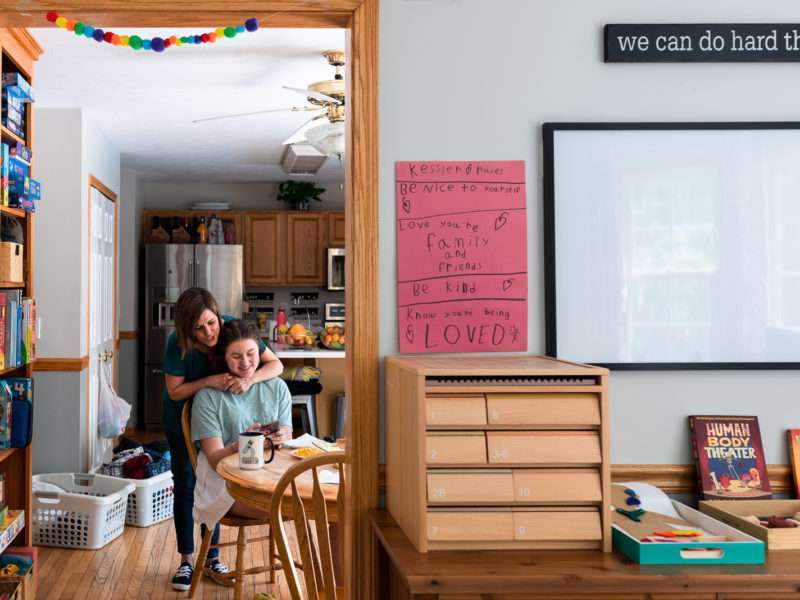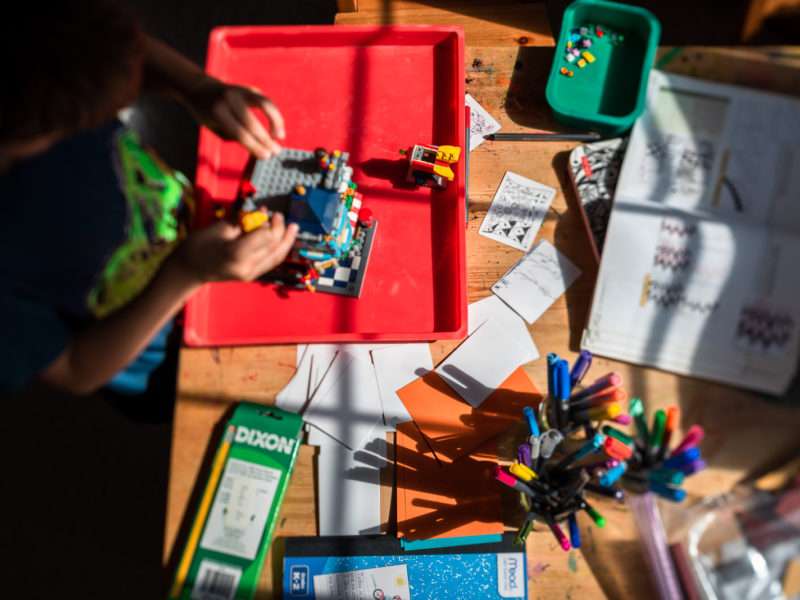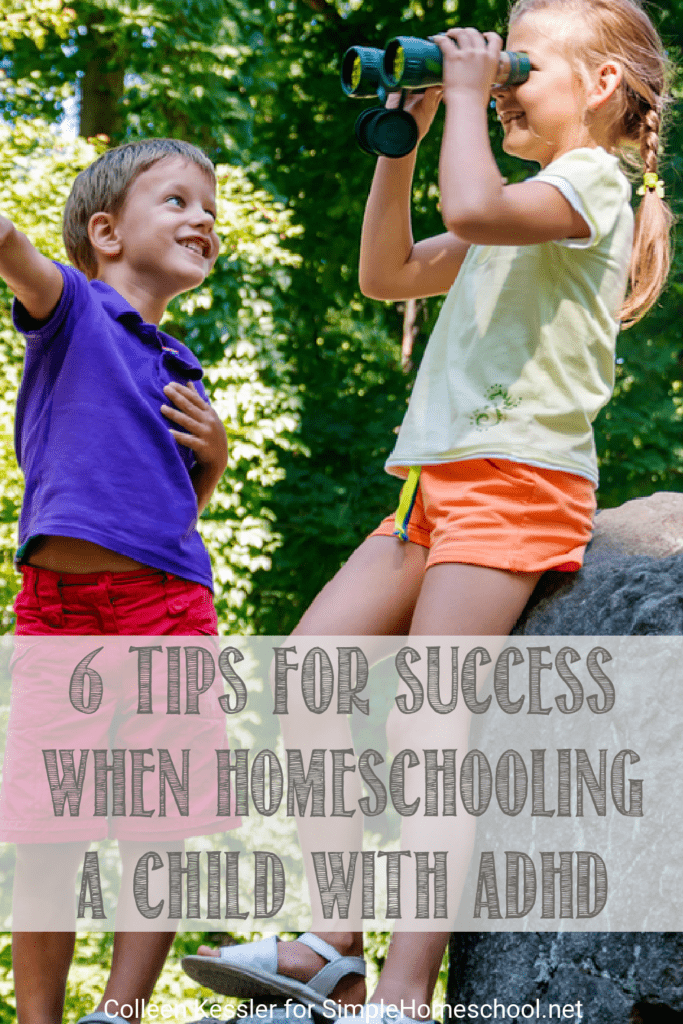6 Tips for Success When Homeschooling a Child with ADHD
6 Tips for Success When Homeschooling a Child With ADHD
~ Written by Colleen Kessler from Raising Lifelong Learners
Homeschooling a child with ADHD (Attention Deficit-Hyperactivity Disorder) can be difficult, heartbreaking, and lonely:
“I just don’t think our group is the best fit for your family. If you want to consider leaving [your oldest] at home and just coming with the younger kids, we’d love to have you. Otherwise, I think it’s best if you found a new homeschool group.”
Mine wasn’t a bad kid, nor did he act out at these meet-ups. It was a field trip and homeschool PLAY group, for goodness sake!
He was simply immature, impulsive, and often lacked a filter.
So when the world seems to be against our kids (and us) when we’re living with and homeschooling a child with ADHD, what can we do?
Here are 6 tips for success when homeschooling a child with ADHD:
1. Focus on the Positive
It’s easy to think of ADHD as a negative — the terms deficit and disorder denote that, after all. But, it’s important to remember that there are MANY positives to ADHD.
These include such traits as:
- Creativity
- Sensitivity, including empathy for others
- Keen observation of one’s environment
- Deep emotions
- Perceptivity
- Imagination
- Curiosity
- Inventiveness
- Spontaneity
- Proficiency in sports and athletics
- Passion
- Resilience
- Charisma
I just love the passion, intensity, and fervor with which my ADHD son approaches the world. Life around here would be pretty dull without him.
2. Try Therapy
Too often we think of family or child therapy as an admission of failure when, in reality, it’s a sign of bravery.
A good psychologist, counselor, or therapist can help your family find the tools they need to grow and mature together as you help your child develop self-regulation skills.
And when everyone is in on the therapy, you’re all on the same page with what’s going on and how to handle things.
3. Create Consistent Routines
Children with ADHD need routine more than other kids. It’s comforting when things are predictable.
They don’t need a rigid schedule, but having a predictable routine can foster a sense of security in a kiddo with ADHD, who is often very sensitive to changes in his or her environment.
Simple things like knowing that chores come after breakfast and math comes after chores, then the family gathers for some time to work on projects together while having a snack, can make all the difference in an ADHD kiddo’s day.

4. Identify the Good Behaviors
Sometimes it feels like I’ve corrected my ADHD kiddo about a hundred times before I’ve even had my first sip of coffee in the morning.
If it’s frustrating for me, can you even imagine how it feels for him?
Psychologists estimate that it takes between seven and ten positive interactions to offset one negative interaction in our brains so with our kids with ADHD, we need to be extra aware of how we talk to them.
It’s important to look for the good things they’re doing and saying and tell them what we’re seeing.
5. Avoid Blame
Resist the temptation to beat yourself up about your child’s ADHD or blame other family members. Think about it this way: God doesn’t make mistakes. Your child is yours for a reason.
Perhaps that reason is that you are the perfect parent to understand and help him with his ADHD.
Neurodiversities just are. They’re not something anyone caused, they’re just how our kids’ brains are wired.
6. Find Your People
In addition to therapy, it helps to find a support group for families with ADHD and otherwise neurodiverse homeschooled children. You can get ideas from other parents and share your own breakthroughs and challenges.
In a world where ADHD is thought to be just a discipline issue, families get stressed when they constantly feel misunderstood.
Support groups can help. There are many online groups for families with quirky and neurodiverse kiddos. Some of our favorites are Raising Poppies (on FB), Homeschooling Poppies (on FB), and the Learner’s Lab (a paid membership community for parents AND kids).
Remember, no matter what others think, even if they ask you and your kids to leave a group because it’s “not a fit” for them or you, your kids are perfectly and wonderfully made.
They are who they are and how they are for a purpose. Look for the good, build them up, and be confident that you are the perfect parent for your perfect kiddo.
You’re not alone in this journey. I promise.
What’s Your Homeschool Mom Personality? Take Jamie’s quiz now and receive a free personality report to help you organize your homeschool based on what your personality type needs most!


